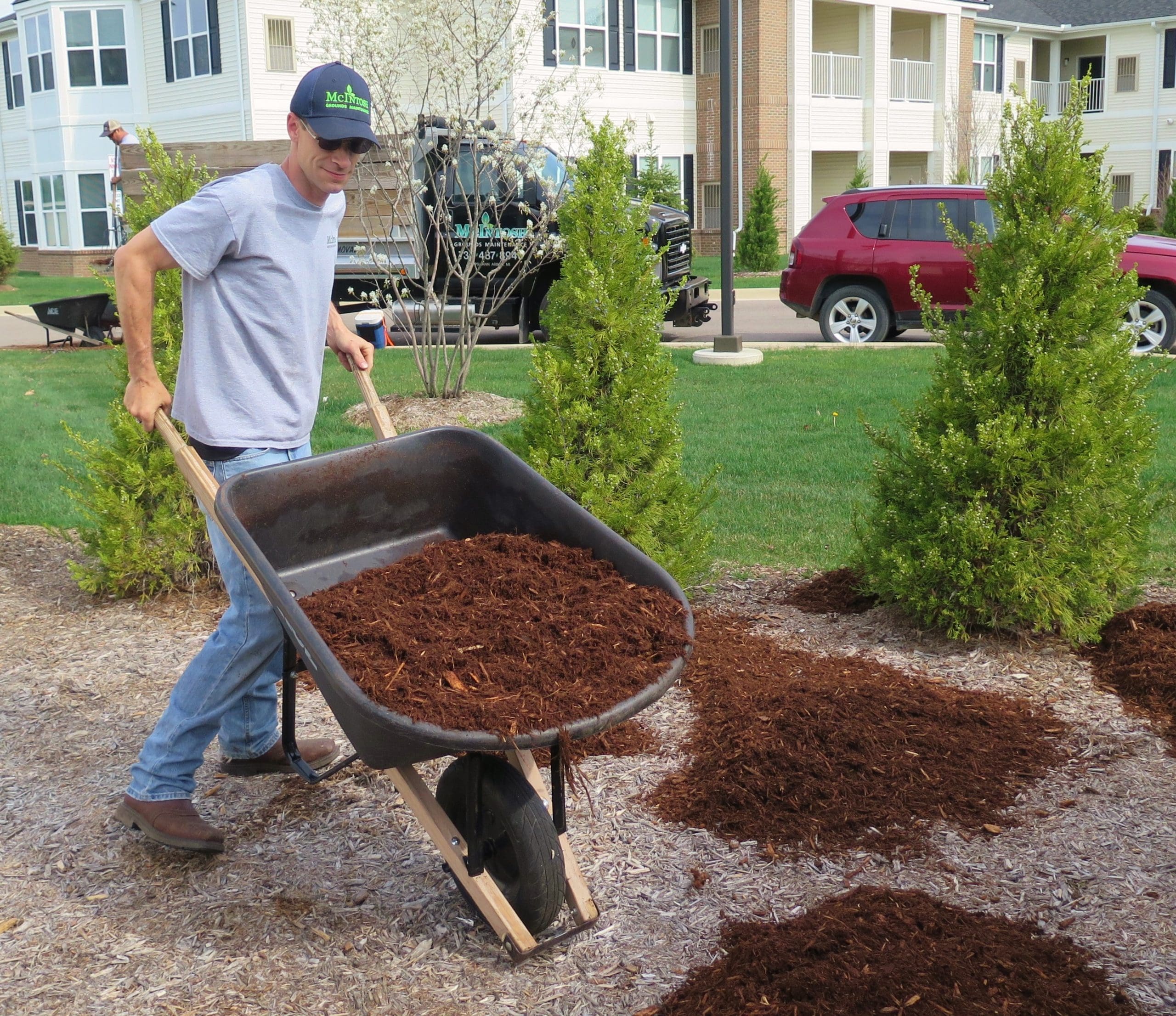
Though most industry companies around the U.S. got their spring season’s started, that’s not true for Michigan’s green industry due to the state’s Stay at Home Orders.
Michigan landscape, lawn care, and nursery companies along with the Michigan Nursery & Landscape Association, and NALP, have been working together to see business restrictions eased. On April 24, Michigan’s governor Gretchen Whitmer announced that landscapers, lawn service companies and plant nurseries could resume operations, subject to social distancing rules.
“We’re just thrilled to go back,” says Jerry Grossi, owner of ArborLawn, based in Lansing. “Since we’ve been at the office, now for two days, we are so backed up with emails and phone messages from customers wanting us to be out there right away. I mean they seem to be more excited even than us, so it’s been very, very positive.”
Brilar, which has employees in Ohio, Indiana and Iowa as well, is also pleased that their Michigan team is allowed to go back to work.
“We’ve worked really, really hard over the last couple of years to get through this crazy tough labor market that we’ve all been fighting with,” says Mike Voories, COO of Brilar. “We found a lot of really good people. We got creative, did a ton of recruiting and filled a lot of our seats with some amazing people. Then shortly thereafter we’ve had to furlough these people. So, we overcame a challenge and then almost had the rug pulled out from under us. Getting our people back to work is the biggest thing for me. I hate seeing these people who put their trust into us sitting at home and not getting paid.”
Doug McIntosh, owner of McIntosh Grounds Maintenance based in Milan, says that not only financially, but mentally, it is good for them to get back outside and do their jobs.
Game Plan Going Forward
All three companies acknowledge that because time is a non-renewable resource, they won’t be able to fully recuperate the weeks they’ve lost.
“Here in Michigan because of our northern climate, our landscapes season is only about 32 to 34 weeks long and if you lose five of those weeks, really you can’t make it up,” Grossi says. “Our schedule is pretty booked. We are going to try to work some Saturdays and some extra time and obviously, ask the staff to go just a little further to help try to make up some of this. We probably can’t make it all up. It’s just a physical impossibility because we lost so much time.”
McIntosh says they plan on doubling up on a few services, such as pairing the cleanups with mowings.
“It’s just going to be a little more taxing on the guys, and a couple of the landscape projects are just getting pushed back a few weeks,” McIntosh says. “Last year it was extremely wet, so we lost some time where it messed with our schedule, so this isn’t unprecedented as far as having to be off for days at a time, but for the reason that we were, that was unprecedented.”
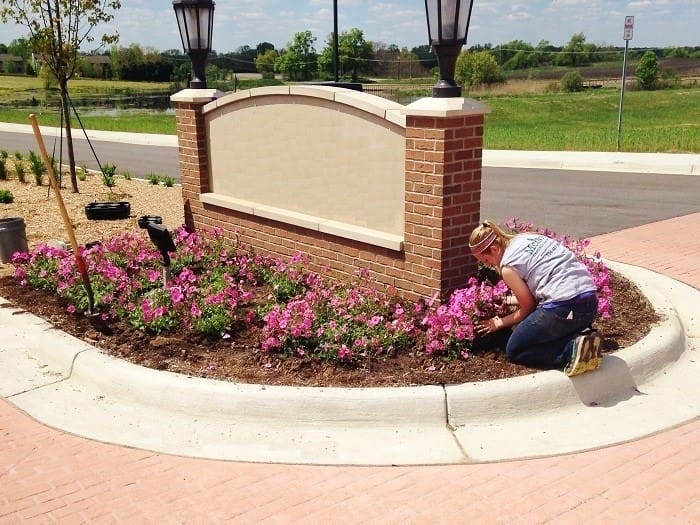
As for how they are dealing with scheduled projects delayed by the shutdown, Voories says they’ve will continue with their schedule of first in first out, with customers who signed up months ago being at the top of the list.
“All the customers want to be first,” Grossi says. “We’re certainly not capable of doing all the work in a day so we’re going to keep our schedule that we had originally set up and do the best we can.”
McIntosh says they are prioritizing certain services, such as mowing, which needs to be done every week. He adds that they are keeping their customers informed of their project’s status with weekly letters.
“We’ll be very selective on which jobs we take moving forward,” McIntosh says. “We might not take on those one-time customers to make sure we have time for our regular customers to service them well.”
When it comes to maintenance such as treating for weeds, Voories and McIntosh says they still are within the window to apply preemergent herbicides, but they’ll have to hustle in order to treat all their customers. “It’s just going be a lot of a lot of man hours, a lot of work to get things back to square zero,” Voories says. “And then once they are we can shine like we always have taking care of our sites.”
Grossi adds that communication with customers is key to ensure their patience, but he says most are likely to be understanding of the situation since everyone has been impacted by the pandemic.
Adjusting Budgets and Marketing
The companies have also had to adjust their budgets and marketing in the face of this delay.
“We had planned growth marketing campaigns and things of nature,” Grossi says. “Now, we’re struggling to get the work that we already have done. Why would you take on a new customer if you’re struggling to get your current customers done? We’re really cancelling the marketing budget rather than putting them off for later because we’re not comfortable that we’ll be able to get all of our work done.”
Voories says their revenue forecast is down from what they thought it was going to be, but he suspects it will only be temporary. He says the company has also shifted its messaging from what a good job they can do to how safe they are as a business.
“We’re basically telling the story, instead of selling beautiful landscapes, which is what customers expect anyway, we’re upping our game in our marketing and selling safe landscapers, healthy landscapers, low-risk to be out on your site landscapers,” Voories says. “That’s how our messages changed in terms of marketing.”
Staying Safe
These companies weren’t idle during the shutdown. Instead, they have been preparing for how to operate safely after the eventual loosening of the state restrictions related to COVID-19.
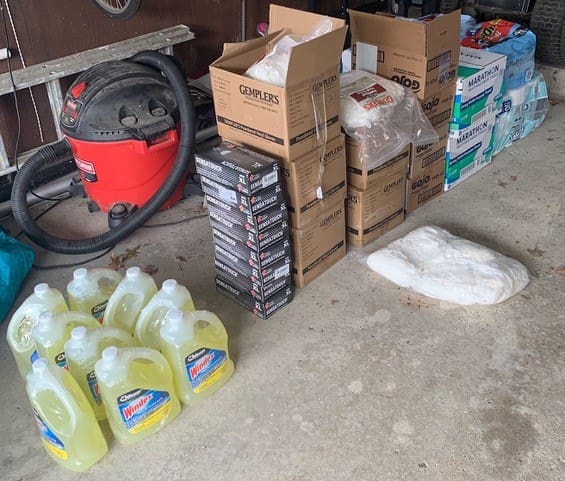
“Our managers have been procuring PPE and cleaning wipes, and I can’t believe the manhours it’s taken to actually get our hands on some of this stuff,” Voories says.
He says many masks were made by employees and employees’ families who volunteered.
Additionally, they built handwashing stations, outfitted trucks with PPE and created a morning screening area where employees’ temperatures can be checked. Voories says Brilar also created a comprehensive workplace manual that they are sharing with the industry.
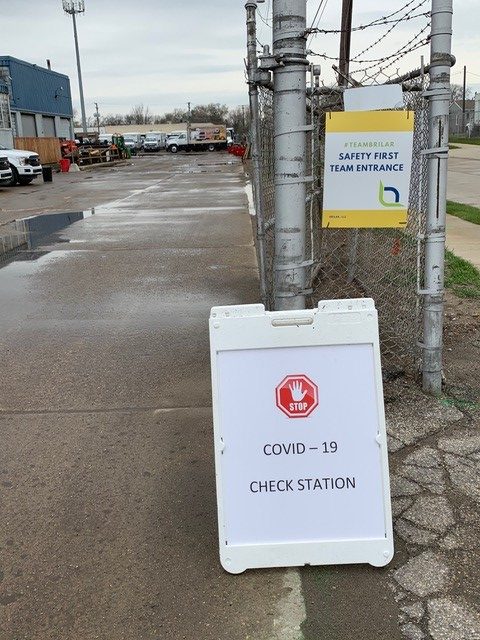
Some of the main practices from the manual include screening employees in the morning, staggered start times for crews, disinfecting trucks at the end of the day and limiting crew sizes.
McIntosh says they are taking temperatures in the morning, providing all the needed PPE and ensuring employees social distance from customers.
Grossi says some of his staff also made masks while furloughed and they ensured they were stocked up on all the necessary PPE as well. They’ve decided to keep half of the office staff remote to make social distancing easier.
“Most of our crews going to be one-man crews,” Grossi says. “The construction crew people will be two people, but they’re going to take separate vehicles because we have some extra vehicles.”
Preparing for Another Shutdown
Predictions of a possible fall spike in COVID-19 cases cannot be ignored, and the landscape companies have given thought to how to handle another possible shutdown. Grossi says that if there was another shutdown, they’d be able to do it in an orderly fashion and make sure to inform their customers of the situation.
McIntosh stresses the importance of businesses having a financial safety net where they can survive a shutdown.
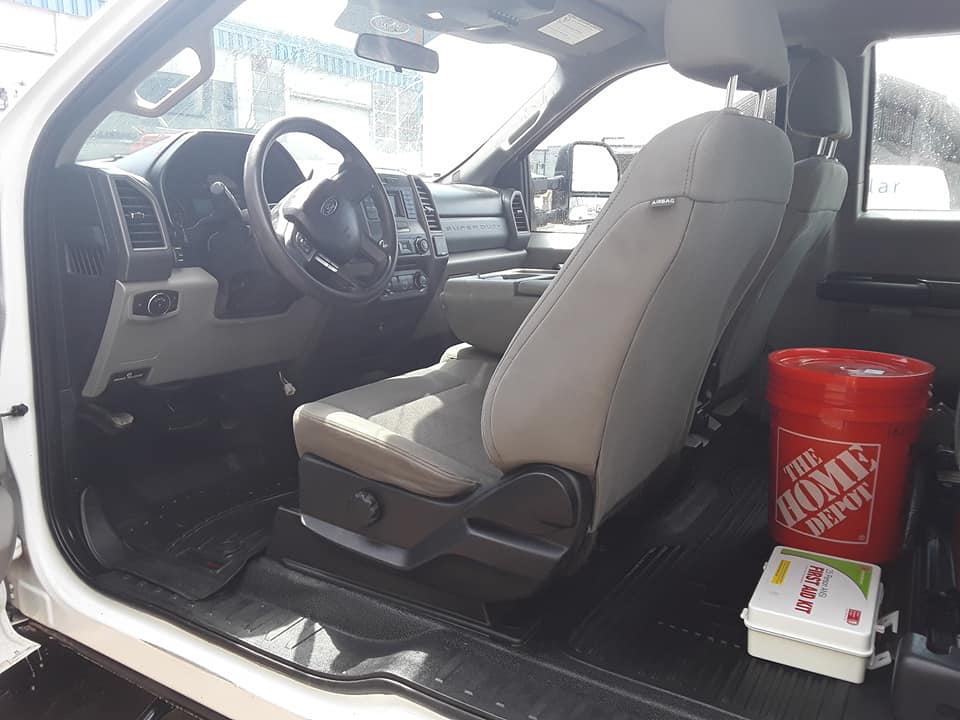
“Keeping your business on good ground is the big thing, reduce debt, eliminate debt if possible, and that’s always been our goal is to stay debt free,” McIntosh says. “Number two is, if it happens again, stay in communication with the customers. Let them know what’s going happen and be smart with what jobs we take and what jobs we can do and be realistic with our expectations. Our industry has to be able to adapt and overcome quickly, but the first step has to be, financially, you need to be on stable ground.”
Voories says they would fight to prevent being shut down again, by proving how safe they are as an industry.
“The game plan is to really use the time now to prove without a doubt that we, our industry, can work safer and are more low risk than just about any other industry that has historically been called essential,” Voories says.


Comments are closed.